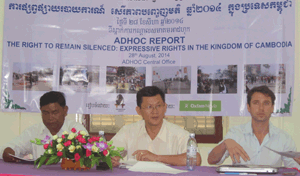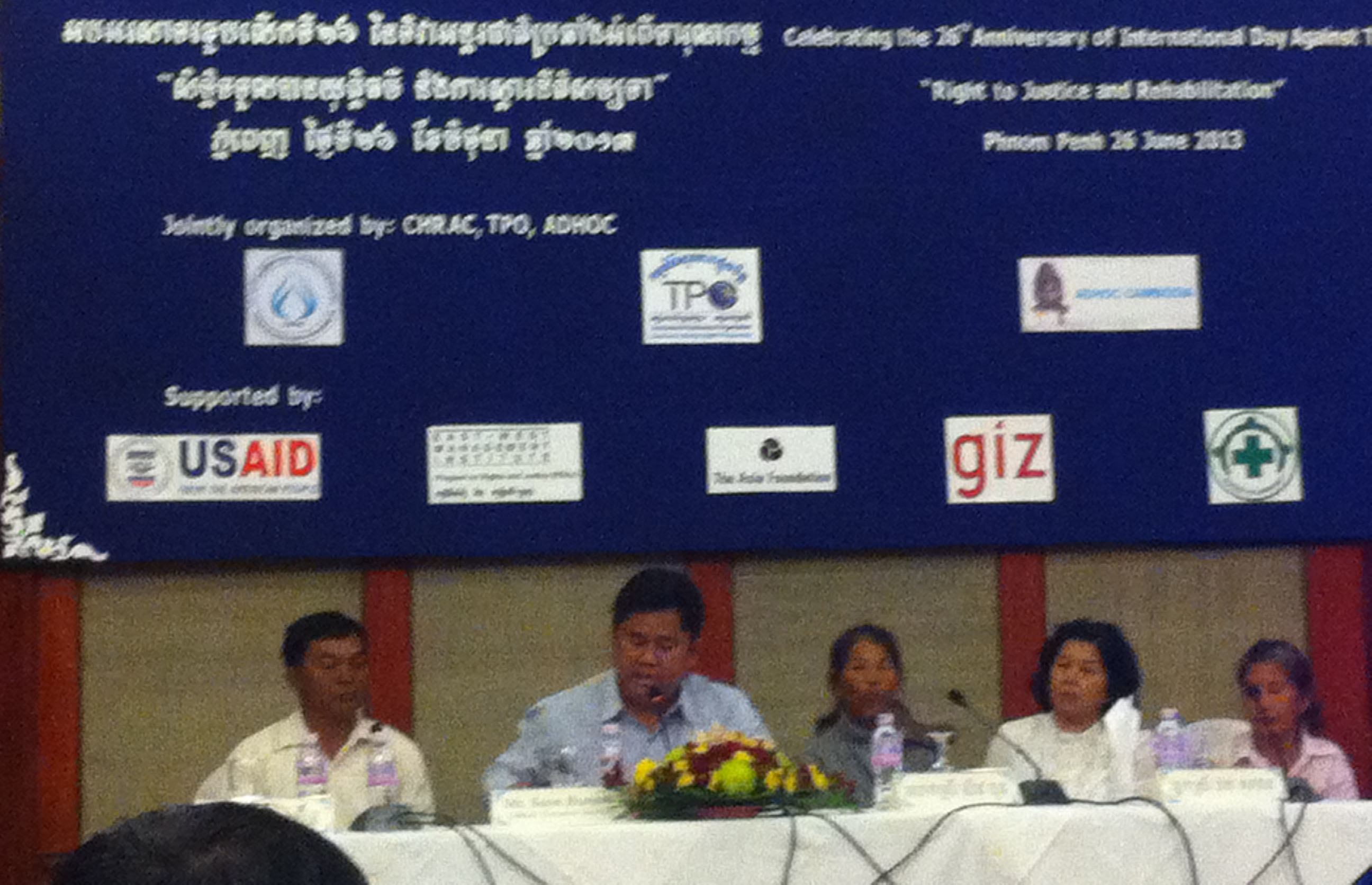Executive Summary of Human Rights Situation Report 2008
Even though non-ruling political parties enjoyed access to some private radio stations in order to promote their election campaign during the 2008 national election there was no improvement in the freedom of the press which remained restricted by international standards. All state radio stations and private and state television stations are strictly controlled by the ruling party. Due to these restrictions the public was often unaware of public events organised by non-ruling political parties and some NGO’s.
Journalists were subject to various forms of threats throughout the year, and in one case a journalist was shot dead. This shooting illustrates that despite the 15 to 16 years since the transition to democracy journalists still face very real dangers in undertaking their activities. In each case where journalists were killed the perpetrators were never identified or punished.
During 2008 some civil society organisations were permitted to publicly celebrate some events such as International Human Rights, International Women’s and Disabled Rights days. However the government worked to restrict freedom of assembly. The authorities imposed restrictions on public demonstrations relating to land and natural resource conflicts, and workers rights. Of 155 peaceful strikes and demonstrations that took place 105 (70%) were suppressed forcibly by the armed forces. The government employed various tactics to restrict freedom of assembly. The authorities often refused to authorise demonstrations, or delayed in granting authorisation for demonstrations shortly before they were due to take place, then unauthorised strikes and demonstrations were suppressed by force.
Land conflicts remained a contentious issue in Cambodian society. Military officials were increasingly involved in land conflicts with a threefold increase in the numbers of cases that featured members of the armed forces as parties to disputes (125 cases in 2008 compared to 40 in 2007). Land and resource conflicts occurred across Cambodia, from urban to remote rural areas. Instances and the severity of violence relating to land conflicts increased in 2008 with 3 people being killed in disputed areas, and 5 dying later in hospital as a result of injuries, compared with 2 persons killed in 2007. The court system remained heavily influenced by private companies and powerful individuals and was used increasingly to arrest and detain complainants in land conflicts. In 2008, out of 306 cases 150 people were arrested and detained compared to 139 from 350 cases in 2007. Aside from those arrested over 100 people facing arrest warrants evaded capture. To date there are 59 people still detained in prison.
Forced evictions remained a grave concern. ADHOC alone received 25 complaints of large scale forced eviction effecting more than 10,000 families, made up of 46,095 individuals. The main reason for forced evictions remained the renting or sale for development of occupied land to private companies without adequate compensation to the current occupants. The government made some effort to provide land to poor people in the form of the Social Land Concession. However according to information received by ADHOC only 409 hectares of land was provided compared to the 225,090 hectares provided to some 71 private companies, in the form of Economic Land Concessions. More than 10,000 families claimed that they had been negatively impacted by Economic Land Concessions, which were granted without any prior social impact assessment. There were many more poor people as yet unaware of the future harmful impact of Economic Land Concessions and still able to access their land unimpeded since the companies granted the concessions had yet to occupy or develop the land.
There was a concerning increase of threats against human rights defenders involved in land disputes. Human rights staff and activists providing advice to victims of land and resource seizures on seeking redress with the courts or authorities, or the release from detention of their community representatives, were particularly subject to threats and accusations of incitement. Such accusations from government officials were designed to intimidate workers and activists from providing legal advice and assistance to victims in land disputes with private companies and powerful people. In 2008 at least 164 human rights defenders in 63 cases were subjected to such threats.
There was a significant legislative development in 2008 with the adoption of the Law on Suppression of Human Trafficking and Sexual Exploitation. However despite this positive development, and the prior adoption the Law on Prevention of Domestic Violence and Protection of Victims in 2005, there was no significant reduction in violence and exploitation of women and children.
ADHOC found that in reality human trafficking for the purpose of sexual exploitation increased from 2007 levels with women and children being traded within Cambodia and across international borders in ever greater numbers (please see the Trafficking for Sexual Exploitation section of report for details). However in 2008 the US government ranked Cambodia as a Tier 2 country (a country where significant efforts are being made to meet minimum standards in combating trafficking), an improvement over the previous year’s Tier Two ”Watch List” designation due to their perception that the Cambodian government had increased its commitment to combating trafficking.
Levels of domestic violence incidents remained consistent with 2007 levels. The numbers of people dying as a consequence of domestic violence also remained at the same level as 2007 and demonstrated that the domestic violence law has had no apparent impact in the 3 years since it was adopted. According to Article 14 of the law local authorities were empowered to issue administrative orders against perpetrators to prevent future violence but in practice this power was not used. Due to the failure of local authorities and officials to enforce the law, domestic violence continued unchecked, and resulted in serious injuries and in some cases the death of victims.
As in the previous year the Extraordinary Chambers in the Courts of Cambodia (ECCC) encountered significant problems that hampered its progress. The failure to transparently address persistent corruption allegations on the Cambodian side of the court increased tensions within the hybrid court, led to donors delaying promised funds and impeded attempts to ensure that the courts long-term budget needs were met. Victims of the Khmer Rouge expressed frustration at the slow progress towards trials, with the expected start of the trial of “Duch” head of Toul Sleng detention centre pushed back to 17th February 2009. There were no further judicial investigations into additional suspects and no further arrests of suspects. At years end divisions between International and Cambodian Co-Prosecutors on whether to press for further suspects to be investigated became public, with the International Co-Prosecutor filing a Statement of Disagreement asking for the Pre-Trial Chamber to resolve the dispute. Some civil society monitors expressed concern that the ECCC may face external pressures that would affect the independence of the tribunal.


